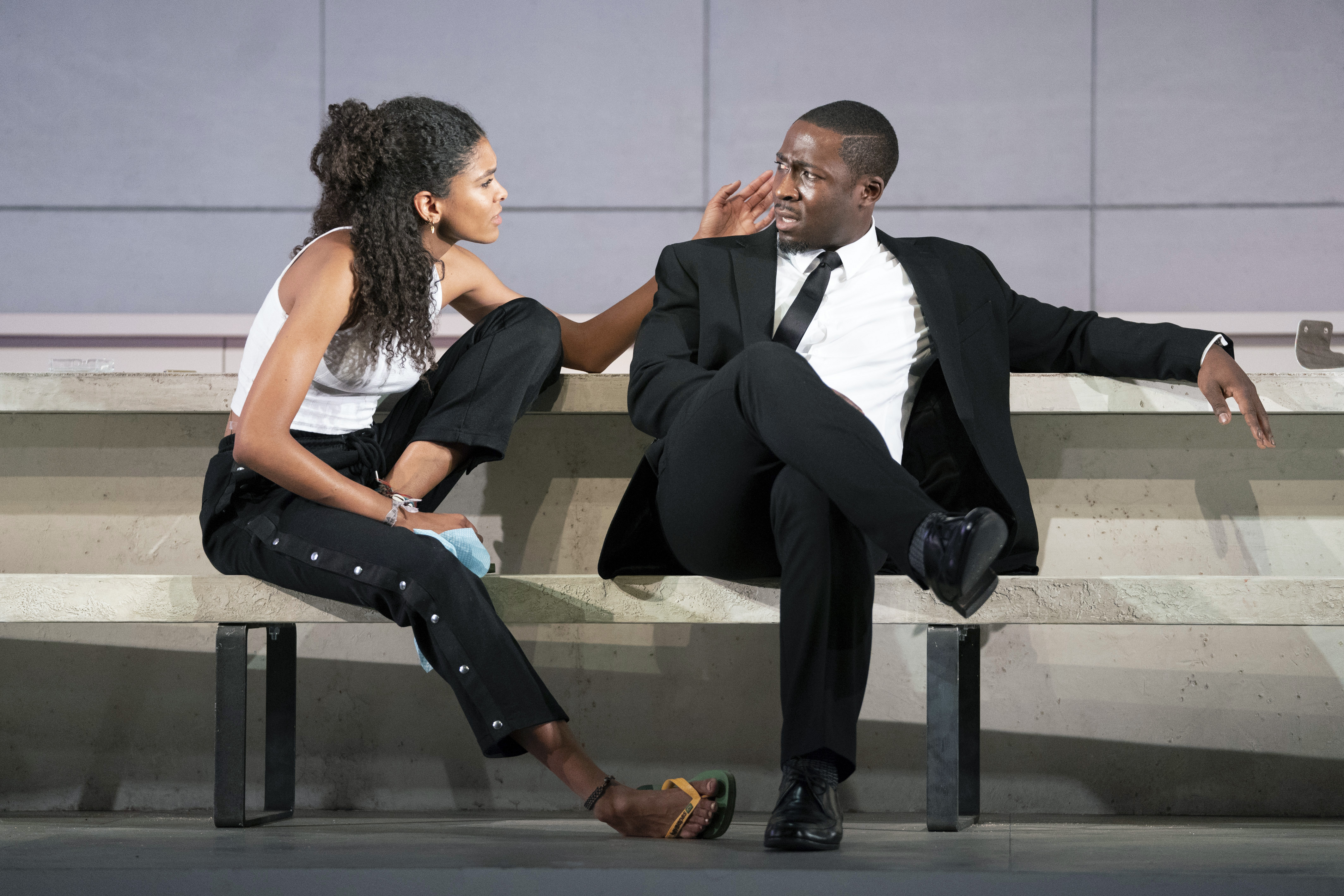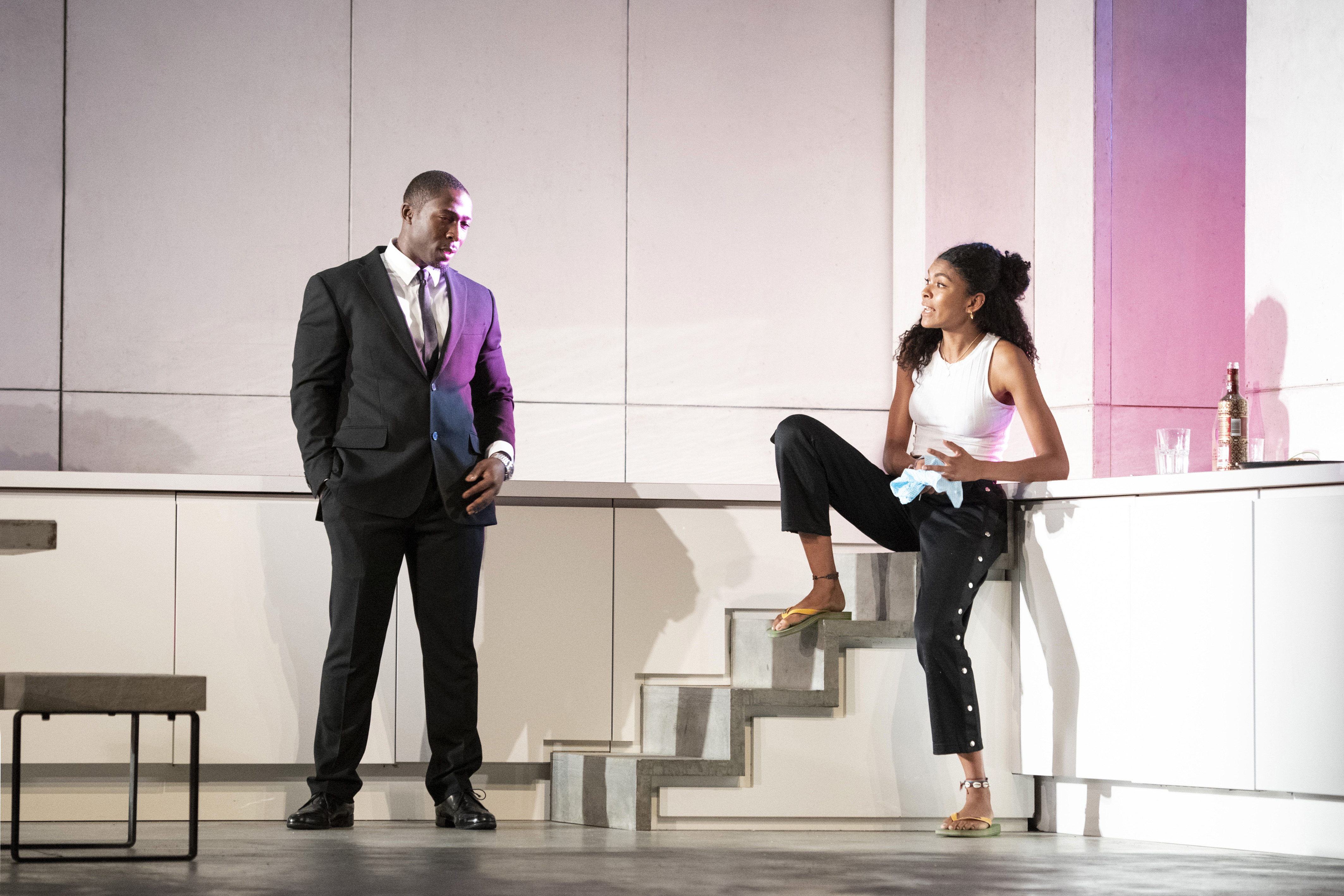The National Theatre’s Julie presents us with an updated and modernised version of Strindberg’s tragedy Miss Julie and without doubt the piece is a feast for the senses. Running at a mere 90 minutes it is a sharp portrayal of a woman in an emotional downward spiral at her birthday party. Writer Polly Stenham and director Carrie Cracknell take the source material that depicts the class divide in an affair between the daughter of a count and a servant and transpose it to show the modern-day chasm between classes. This is understandably less pronounced when between a rich woman in 2018 and her chauffeur but what Stenham aims for with an impressively sure hand is the fact that the chasm still resides between experience and world views.
Julie is an incredibly strong piece of theatre where all the elements come together to add nuance, to elevate and modernise Strindberg’s original meditation on class
Eric Kofi Abrefa playing Jean and Vanessa Kirby playing Julie are stunning in this production – managing to surgically cut each other with their words but also always retain a dual sense that they are using one another and potentially could be saved by each other. They are surrounded by a minimal set of a modern luxury flat – kitchen in the foreground, in the background a living room turned dance floor and throughout the debris of a party running late into the night.
The design by Tom Scutt and movement direction by Ann Yee brings an incredible impact to an extravagant but very domestic setting. The stylisation of the dancefloor has real energy and punch matched by brilliant flashes of formal choreography, both which raise the audience awareness to how performative, self-conscious and false the partygoers are in their desperation to be cool.
Meanwhile, cleaning away all the debris is Kristina the maid played by Thalissa Teixeira who provides more to the dynamic than just being the losing member of a love triangle. Stenham’s writing depicts the nuances of power in a working relationship/faux-friendship between a rich employer and a maid. These far more insidious representations of class interactions are what make this piece modern and worthy of this update. Kristina is in no way a servant but the emotional work she has to do to retain boundaries and dignity is huge while Julie gets to simply exist.
Living in a delusion that in this capitalist society Kristina and Jean have the same choices and autonomy she has. In this I would say, the play could have spent much longer as a three-hander interaction between Julie, Jean and Kristina which would have punctured the naïve ideas of the couple’s future together early on but would have also interrogated their motives more fully.
Julie is an incredibly strong piece of theatre where all the elements come together to add nuance, to elevate and modernise Strindberg’s original meditation on class.
Julie will be screened to cinemas as part of National Theatre Live on 6th September 2018.



























